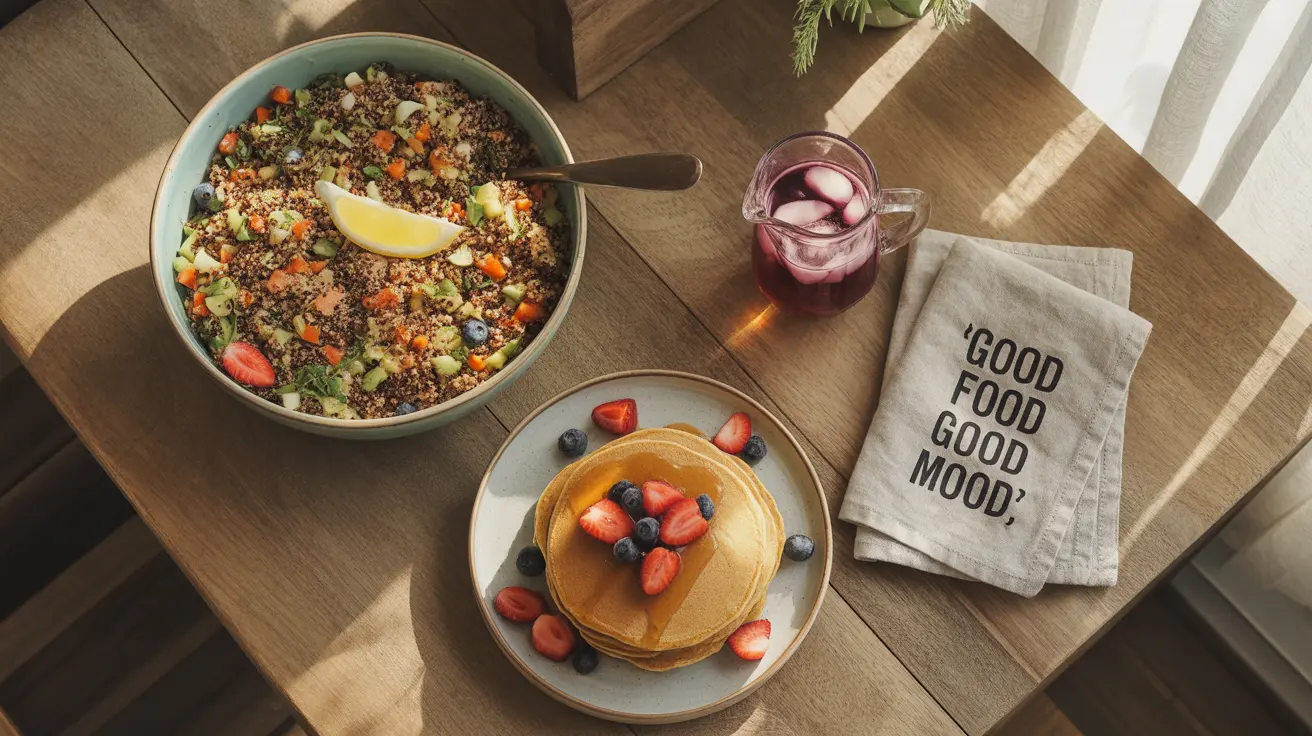In recent years, plant-based eating has gained significant popularity, with more people exploring vegan and vegetarian lifestyle diets. These dietary choices not only impact what's on your plate but can also influence your overall health and well-being. This comprehensive guide will delve into the key differences between vegan and vegetarian diets, their potential health benefits, and important considerations for those looking to adopt these lifestyle changes.
Understanding Vegan and Vegetarian Diets
Both vegan and vegetarian diets fall under the umbrella of plant-based eating, but they have distinct characteristics that set them apart. Let's explore the fundamental differences between these two lifestyle diets.
Vegetarian Diet Overview
A vegetarian diet excludes meat, poultry, and fish but may include other animal products. There are several types of vegetarian diets, including:
- Lacto-ovo vegetarians: Consume dairy and eggs
- Lacto vegetarians: Include dairy but avoid eggs
- Ovo vegetarians: Eat eggs but avoid dairy
Vegetarians typically get their protein from sources like legumes, nuts, seeds, and dairy products (if included in their diet).
Vegan Diet Explained
A vegan diet is more restrictive, excluding all animal products and by-products. This means no meat, fish, dairy, eggs, honey, or any other animal-derived ingredients. Vegans rely entirely on plant-based foods for nutrition, including fruits, vegetables, grains, legumes, nuts, and seeds.
Health Benefits and Considerations
Both vegan and vegetarian diets can offer significant health benefits when properly planned. However, they also come with unique considerations that individuals should be aware of when adopting these lifestyle diets.
Potential Benefits
Plant-based diets are often associated with:
- Lower risk of heart disease
- Reduced risk of certain cancers
- Better weight management
- Improved blood sugar control
Nutritional Considerations
While these diets can be very healthy, it's crucial to ensure proper nutrient intake. Both vegans and vegetarians should pay attention to getting enough:
- Protein
- Vitamin B12
- Iron
- Calcium
- Omega-3 fatty acids
Vegans, in particular, may need to be more vigilant about these nutrients as their diet excludes all animal products.
Weight Loss and Plant-Based Diets
Many people turn to vegetarian or vegan diets for weight loss. These diets can indeed be effective for shedding pounds when structured correctly. Here are some tips for using a plant-based diet for weight loss:
- Focus on whole, unprocessed foods
- Include plenty of fiber-rich fruits and vegetables
- Choose lean plant proteins like legumes and tofu
- Practice portion control
- Limit high-calorie vegan processed foods
Remember, weight loss ultimately comes down to creating a calorie deficit, regardless of the diet you choose.
Ensuring Adequate Nutrition on a Vegan Diet
One of the biggest concerns for those following a vegan lifestyle diet is getting enough nutrients, particularly protein. Here are some strategies to ensure a well-balanced vegan diet:
Protein Sources for Vegans
Contrary to popular belief, it's entirely possible to meet protein needs on a vegan diet. Excellent plant-based protein sources include:
- Legumes (beans, lentils, chickpeas)
- Nuts and seeds
- Whole grains (quinoa, amaranth)
- Soy products (tofu, tempeh, edamame)
- Plant-based protein powders
Preventing Nutritional Deficiencies
To avoid common deficiencies, vegans should focus on:
- Vitamin B12: Consider supplements or fortified foods
- Iron: Combine iron-rich plants with vitamin C for better absorption
- Calcium: Incorporate leafy greens and fortified plant milks
- Omega-3s: Include flaxseeds, chia seeds, and walnuts in the diet
Vegan vs. Vegetarian: Heart Health Comparison
Both vegan and vegetarian diets can be beneficial for heart health, but some studies suggest that vegan diets may have a slight edge. This is likely due to the complete elimination of animal products, which can be high in saturated fats. However, the key to heart health on either diet lies in:
- Choosing whole, unprocessed foods
- Limiting added sugars and unhealthy fats
- Including a variety of fruits, vegetables, and whole grains
- Managing portion sizes and overall calorie intake
Ultimately, the healthiest diet is one that you can maintain long-term and that meets all your nutritional needs.
Frequently Asked Questions
- What are the main differences between a vegan and a vegetarian diet in terms of food choices and lifestyle?
The main difference is that vegetarians exclude meat, fish, and poultry but may consume dairy and eggs, while vegans exclude all animal products and by-products. Veganism often extends beyond diet to avoid animal-derived products in clothing and other aspects of life.
- Can a vegetarian diet help with weight loss, and if so, how do you structure it for the best results?
Yes, a vegetarian diet can aid in weight loss. For best results, focus on whole plant foods, include plenty of protein-rich sources like legumes and tofu, control portions, and limit high-calorie processed foods. Combine this with regular physical activity for optimal weight loss.
- What are some common nutritional deficiencies to watch out for when following a vegan lifestyle, and how can you prevent them?
Common deficiencies in vegan diets include vitamin B12, iron, calcium, and omega-3 fatty acids. Prevent these by eating a varied diet, including fortified foods, and considering supplements, especially for B12. Regular blood tests can help monitor nutrient levels.
- How can someone ensure they are getting enough protein on a vegan diet without relying on animal products?
Vegans can get adequate protein by consuming a variety of plant-based sources such as legumes, nuts, seeds, whole grains, and soy products. Combining different protein sources throughout the day ensures a complete amino acid profile. Plant-based protein powders can also be helpful.
- Are vegan diets healthier than vegetarian diets for heart health, and what are the key factors to consider when choosing between them?
While both diets can be heart-healthy, some studies suggest vegan diets may have a slight advantage due to lower saturated fat intake. Key factors to consider include personal health goals, nutritional needs, and lifestyle preferences. The healthiest diet is one that is well-planned, nutritionally adequate, and sustainable for the individual.




